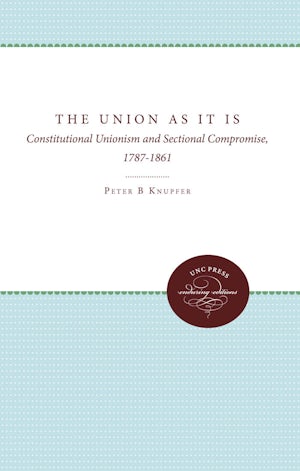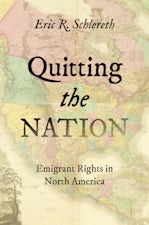The Union As It Is
Constitutional Unionism and Sectional Compromise, 1787-1861
By Peter B. Knupfer
304 pp., 6 x 9
-
Paperback ISBN: 978-0-8078-5741-0
Published: May 2011 -
E-book EPUB ISBN: 978-0-8078-6255-1
Published: November 2000 -
E-book PDF ISBN: 979-8-8908-8569-2
Published: November 2000
Buy this Book
- Paperback $50.00
- E-Book $29.99
Originally published in 1991.
A UNC Press Enduring Edition -- UNC Press Enduring Editions use the latest in digital technology to make available again books from our distinguished backlist that were previously out of print. These editions are published unaltered from the original, and are presented in affordable paperback formats, bringing readers both historical and cultural value.
Reviews
"An imaginative treatment of a major theme in American political history, displaying wide learning and careful thought. Knupfer has made his mark as a rising historian."--Daniel Walker Howe, University of California, Los Angeles
"The Union As It Is reopens a neglected chapter in the history of American political discourse in which the terms 'compromise' and 'moderation' filled the writings and informed the actions of constitutional unionists like Henry Clay, Francis Lieber, and a host of statesmen, publicists, and civic educators. This intelligent, sympathetic, and overdue account of antebellum moderates deserves the attention of historians, political scientists, and other citizens concerned with America's civic culture."--James Farr, University of Minnesota, Twin Cities
"This intelligent, sympathetic, and overdue account of antebellum moderates deserves the attention of historians, political scientists, and other citizens concerned with America's civic culture."--James Farr




